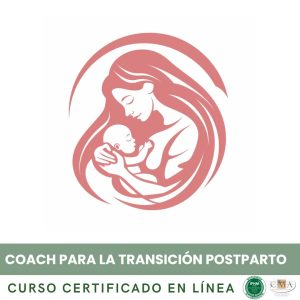7.8 – The Value Scale and Hierarchization

The scale of values is a powerful tool for clarifying and prioritizing the fundamental principles that guide an individual’s choices and actions. Within the context of Ikigai coaching, it allows the client to realize their essential values and ensure that their life path is in alignment with these. By identifying and ordering their values, the client equips themselves with an inner compass to navigate the different dimensions of their existence and make decisions in line with their profound aspiration.
The coach accompanies the client in the exploration of their values by proposing various exercises and reflections. A common approach involves presenting the client with a list of universal values, such as honesty, creativity, freedom, contribution, security, etc., and asking them to choose those that resonate most with them. The client can then rank these values in order of importance, from the most essential to the least crucial. This exercise of ranking invites them to clarify their priorities and identify non-negotiable values that constitute the foundation of their Ikigai.
During a coaching session, Marc realizes that autonomy, innovation, and positive impact are his core values. By placing them at the top of his scale, he understands his dissatisfaction in his current job, which affords him little leeway and the opportunity to contribute to the common good. This realization gives him the courage to consider a career change more aligned with his values.
Another approach involves inviting the client to explore their values through the prism of their significant life experiences. The coach can ask them to recount moments when they felt particularly proud, alive, or in tune with themselves, and identify the underlying values in these positive experiences. Conversely, they can also encourage the client to recall situations of tension or discomfort, revealing violated or neglected values. This narrative exploration allows linking values to concrete lived experiences and understanding their profound meaning.
Sophie recollects a voluntary project in which she passionately participated a few years earlier. By analyzing this experience, she realizes that creativity, sharing, and generosity are essential values for her, which she aspires to express more in her current life. This realization feeds her reflection on her Ikigai and leads her towards professional and personal paths more in tune with these values.
The scale of values is not fixed but evolving. Over time and with different life stages, certain values can become more or less important, while others may emerge or transform. The coach encourages the client to regularly reassess their scale of values to ensure it remains aligned with their Ikigai and their current reality. This flexibility is vital for maintaining a dynamic balance between faithfulness to oneself and adaptation to change.
Two years after creating her initial scale of values, Julie notices that stability and security have gained more importance for her, following the birth of her first child. While remaining true to her values of creativity and freedom, she seeks to express them within a more stable and secure life context, in line with her new priorities.
The scale of values is a complementary tool to other Ikigai exploration tools, such as the 4 circles diagram, self-assessment questionnaires, or the life wheel. It provides vital insight into the ethical and existential foundations that underpin the client’s profound aspiration. By cross-referencing insights from these various tools, the client achieves a holistic and coherent vision of their Ikigai, anchored in their values, talents, passions and their contribution to the world.
By integrating her scale of values into her Ikigai diagram, Sophie realizes that her aspiration to create connection and impart knowledge, identified as her Ikigai, is deeply rooted in her values of generosity, sharing, and contribution. This consistency strengthens her commitment to her career change project as a compassionate communication trainer, a profession that allows her to fully express her values and her Ikigai.
Clarifying and prioritizing values is a crucial step in the journey towards one’s Ikigai. By identifying the fundamental principles that guide their choices and nourish their deep aspiration, the client is equipped with an inner compass to align their life with what really matters to them. The scale of values, used flexibly and iteratively, and in addition to other exploration tools, is a powerful catalyst for realization and action. It allows to impart deep meaning to the Ikigai and anchor it in an ethical and existential vision of a good life, in service to oneself and the world.
Key takeaways:
– The scale of values is a powerful tool for clarifying and prioritizing the fundamental principles that guide an individual’s choices and actions within the scope of Ikigai coaching.
– It facilitates the client’s awareness of their core values, ensuring their life path aligns with these values.
– The coach assists the client in exploring their values through various exercises like choosing and ranking universal values or analyzing significant life experiences.
– The scale of values aids the client in clarifying their priorities, identifying the non-negotiable values that form their Ikigai’s foundation, and connecting their values to concrete experiences.
– The scale of values is not fixed but evolving; it should be regularly reassessed to ensure its alignment with the client’s Ikigai and current reality.
– This tool complements other Ikigai exploration tools and offers essential insight into ethical and existential principles underlying the client’s deep aspiration.
– The process of clarifying and prioritizing one’s values is a crucial step towards realizing one’s Ikigai, imparting profound meaning to it, and anchoring this realization in an ethical and existential life vision.
👉 To download docx (Editable) file click here : Click here
👉 To download PDF file click here : Click here
👉 To download MP3 file click here : Click here

















































































